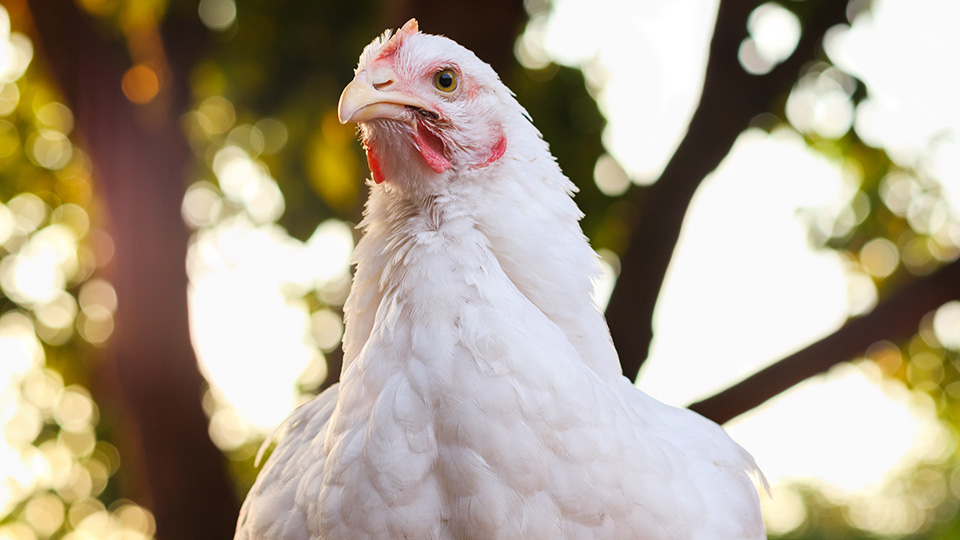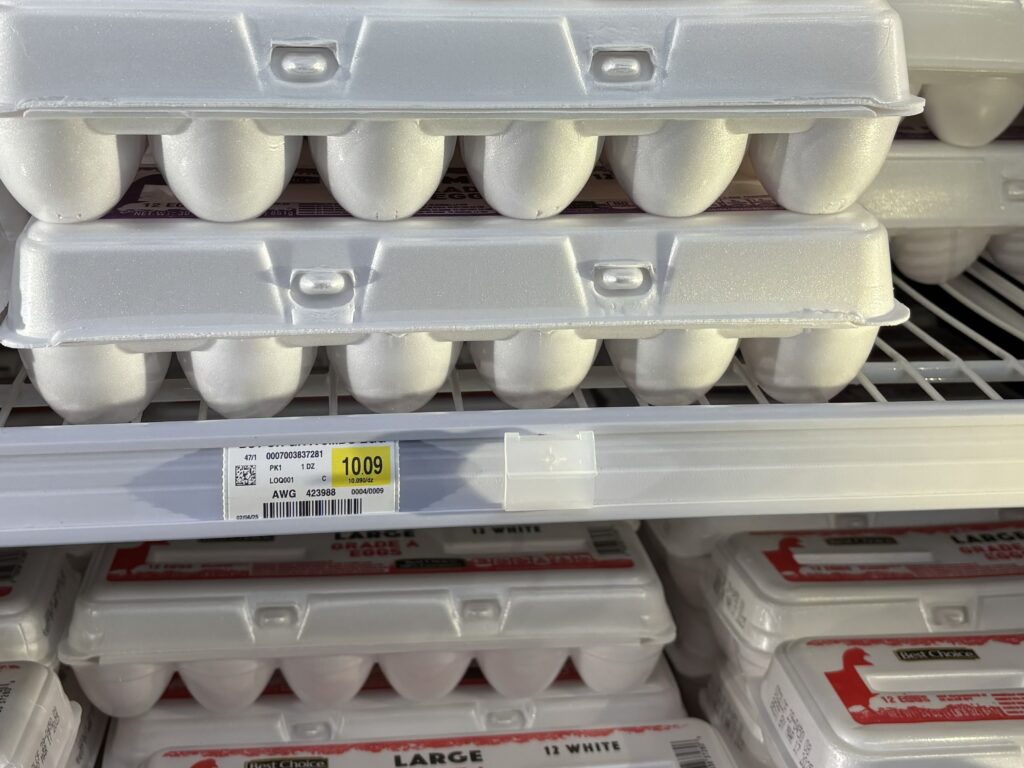Reposted from: https://thehill.com/homenews/administration/4302593-usda-rule-chicken-meat-industry/
Big meatpackers must warn chicken growers about the risks of the deals they’re entering into, according to a new federal rule enacted Wednesday.
The rule is part of a package of reforms the Biden administration has framed as steps to bring transparency and competition back to the meat industry, Department of Agriculture (USDA) Secretary Tom Vilsack said Wednesday. The reforms, he said, take “critical steps in USDA’s competition and farmer fairness agenda.”
Other pieces in the package would direct the federal government to buy meat produced in the U.S. and create a new office to fight monopolies in agriculture. A final part of the rule directs seed companies to display common varietal names alongside brand names — a reform akin to the way buyers of pain relievers know that they can get the chemical “acetaminophen” in the form of Tylenol or cheaper generic alternatives.
But for decades, independent farmers have complained about the effects of the rapid consolidation of the meat industry — something that the new USDA chicken rule aims to reverse. In particular, that rule breathes new life into an old enforcement measure set up in the early 1900s to fight meatpacker monopolies: the Packers and Stockyards Act.
Since a wave of government-backed consolidation in the 1990s, poultry purchasing and processing have been primarily controlled by a handful of enormous meatpackers including Tyson and Pilgrims. Farmers’ groups have long argued that the rise in this industry’s concentrated — and in many regions monopolistic — power has gone alongside corruption, market manipulation and retaliation against farmers that push back.
On Wednesday, the USDA released a new rule targeting what it sees as the worst abuses of the chicken sector. The chicken industry is a fitting first target for what the agency has framed as a broader push to roll back anticompetitive farming practices. For more than two decades, the agency has received complaints from chicken farmers who say that big meatpackers deceive them about the amount of money they would receive from deals — and then punish them with lower payments when they complain. The opaque contracts left many growers in an impossible situation, according to the rule released Wednesday.
Since a wave of government-approved consolidations began in the 1990s, farmers have generally not owned the chickens they raise. Instead, the meatpacking companies do, along with the feed and medicine that turns them from chicks into market-ready “broilers.”
To get these contracts, farmers often must go heavily into debt to build the massive, state-of-the-art “chicken houses” the industry requires — an expense that makes it impossible to walk away if the deal turns out to be worse than they had expected. These growers face a “gap between expected earnings” and what the company is actually willing to pay, the new rule argued.
For decades, chicken farmers have complained that a wave of government-backed mergers in the 1990s tipped the balance of power in the industry decisively to the side of the meatpackers — leaving them in a position some have compared to that of medieval serfs, in a process that growers of other meat have called “chickenization.”
In the dry language of the rule, the USDA calls out this dynamic: Packers, it said, “exert high degrees of discretion that can and do adversely affect growers.”
In particular, these companies tend to present a rosy picture of future earnings just long enough to get farmers locked into big, expensive upgrades that leave them trapped, the USDA wrote.
When farmers are debating whether to take on loans to expand their chicken houses, for example, poultry dealers “repeatedly and consistently omit vital information or make misleading statements, preventing growers from understanding the risks they are taking on,” the USDA wrote.
The leading poultry trade group attacked the rule, which it said aimed to create a flood of frivolous litigation. “Make no mistake, this isn’t about transparency,” said Mike Brown, president of the National Chicken Council (NCC). “This rule was specifically designed to chum the water for lawsuits,” he said, adding that it would “dismantle a successful industry structure that has benefited farmers, chicken companies and ultimately consumers all around the world.”
The NCC added that the timeline in the rule was too fast: Poultry packers “could have to retroactively amend 25,000 contracts in two months over three major federal holidays.”
But farmers’ groups praised the measure, though many said it didn’t go far enough. “For far too long, monopolies across agriculture have put the squeeze on farmers and consumers,” said Rob Larew, president of the National Farmers Union.
“Today’s finalized rule will require poultry companies to be more honest in their dealings with growers.”
But a coalition of environmental groups argued that by restricting the rule to just the broiler chicken industry — leaving out eggs, milk, beef and pork — the USDA had caved to Big Meat.
“USDA must do more to actually protect farmers from corporate abuse, beyond merely informing producers how exploitative the system is,” said Emily Miller, an attorney at Food and Water Watch.
To be sure, the USDA is doing more — and large meatpackers aren’t happy about it. Other rules would require federal buyers to procure only pork and beef raised in the U.S. — a potential value of about a billion dollars to U.S. farmers.
That is a measured step in a direction that American independent ranchers have agitated for since the Obama administration.
In the mid-2010s, the federal government dropped rules that had required that beef come with a label declaring where cows had been raised, butchered and processed — a step that ranchers had seen as essential to keep multinational meat corporations from undercutting with cheaper, imported beef.
When that rule changed, market prices and income for U.S. ranchers crashed, Bill Bullard of the independent ranchers organization R-CALF told The Hill.
Sarah Little, a spokesperson for the North American Meat Institute, said that the added profits ranchers might expect would come out of taxpayers’ pockets.
“Segregation of cattle and hogs to those born, raised and slaughtered in the U.S. will increase costs and will place the burden on school systems and the taxpayer at a time of great need,” she said.
The agency will also set up a chief competition officer to fight monopoly in the meat industry.
These steps are just the beginning: The USDA has proposed four new additions to Packers and Stockyards, including one that would make it easier for farmers to sue over discriminatory treatment.
But time is running out, said Angela Huffman of the progressive farmers trade group Farm Action, a timeline that she said Vilsack has fumbled before.
If those rules aren’t finalized by May — the deadline outlined in the Congress Review Act — a future Republican president or majority could easily overturn them.
“This is the same travesty against competition that happened during the Obama administration on Secretary Vilsack’s watch,” Huffman said.
“The Biden administration should take heed: In the absence of swift action, history could easily repeat itself,” she added.



